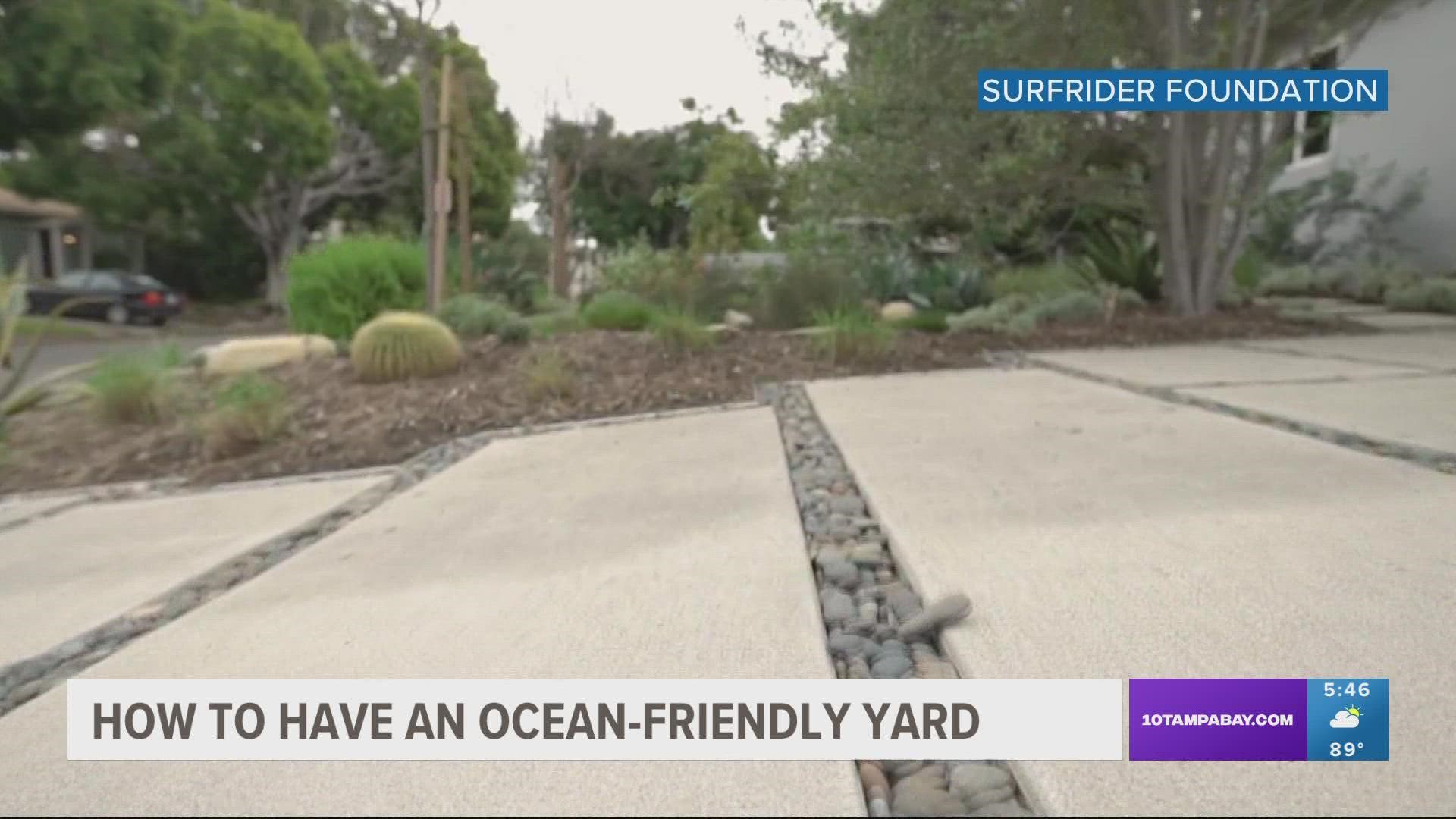ST. PETERSBURG, Fla. — In two weeks, many Bay area communities will ban using fertilizer during the rainy season.
The ban will be in place starting June 1 because what drains off your yard can end up in our waterways. And you don’t have to live near the water to make an impact.
Advocates for ocean-friendly landscaping at the Surfrider Foundation say it’s all one big ecosystem. In addition to what you use on your lawn, they say think about having native plants that will absorb water, use fewer chemicals and don’t need to adapt.
Evan Orellana is the Regional Manager for Florida and Puerto Rico. He advises Florida homeowners to consider how their driveway and the surfaces around the outside of their home and its impact on runoff.
"While runoff can happen in many different ways, one of the main issues is when you have large areas like think of parking lot, large areas of concrete with no absorption into the ground that channels water into the storm runoff drains where that can overwhelm sewer systems and in many cases go straight to our intercoastal to dump in there," Orellana said. "So when you allow water to permeate through the ground, the natural sand, soil, bedrock, it acts as a filter especially in Florida with the limestone. It can retain and hold a lot of those harsher chemicals in areas where they’re not going to get into anything major or great of an impact."
Many Floridians have tile roofs. Orellana says homeowners should think a little greener there as well and look for products that are environmentally friendly.
The fertilizer bans will be in place for Pinellas, Manatee and Sarasota counties, along with the cities of Tampa and St. Petersburg. The bans run through Sept. 30.

